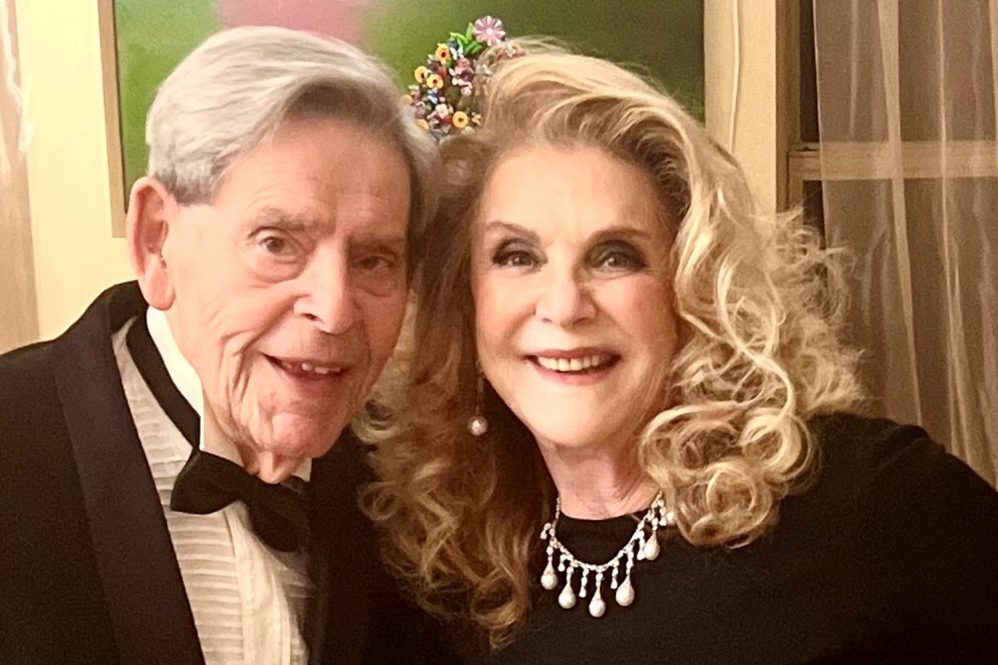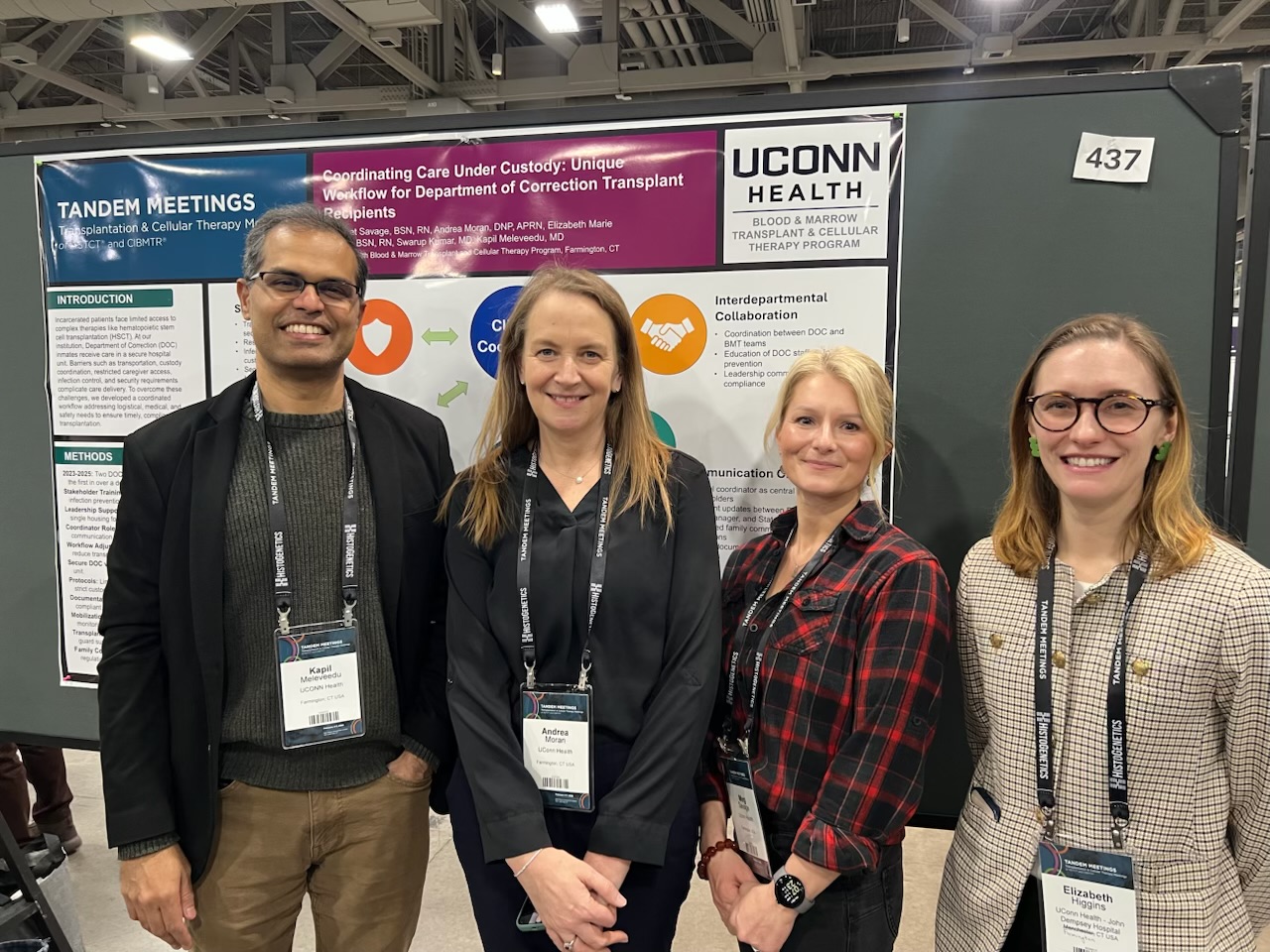Students in some Greater Hartford schools will get the chance to learn about reducing bias and antisemitism through a new UConn program that uses powerful, interactive experiences. Organizers hope to eventually expand the program statewide.
The Morris and Judy Sarna Breaking Bias & Creating Community Program in UConn’s Neag School of Education enables students to ask Holocaust survivors questions through a high-tech, immersive program from the USC Shoah Foundation.
Students also engage with “The Journey Back” from the Illinois Holocaust Museum and Education Center. “The Journey Back” is a virtual reality experience where survivors take students on a journey that mirrors their experiences during the Holocaust, including visits to the Auschwitz concentration camp.
Students also learn through a customized photo exhibit in their school that depicts the various perspectives and identities representing their schools and communities. For example, the West Hartford program will feature several photos of a local man who is a World War II veteran. The images show him variously playing cards, standing with a life-size photo of himself in his military uniform, and holding a Jewish star badge given to him by a French family he helped rescue during the war.
The idea behind the Breaking Bias & Creating Community Program is to reduce hatred and build awareness, empathy, and community by understanding different perspectives and by studying past examples of antisemitism and racism.
The cutting-edge program piloted last year at E.O. Smith High School in Storrs and will be launched in West Hartford middle and high schools in September. Glastonbury schools will host the program the following year. The program is expected to reach tens of thousands of students in multiple Connecticut school districts over the next decade.
The program was made possible by a generous gift to the Neag School of Education from Judy Sarna and her late husband, Morris, who was a Holocaust survivor.
“In essence, the goal is about reducing bias and building community,” explains Alan Marcus, the UConn Curriculum and Instruction professor who developed and directs the program. “The program is designed to help students develop empathy by seeing other people’s perspectives and being able to have conversations with them.”
The program is designed to help students develop empathy by seeing other people’s perspectives and being able to have conversations with them. — Alan Marcus, Curriculum and Instruction professor
The program also involves UConn students majoring in teacher education and graduate students. The UConn students help teach the programs in the schools, gaining hands-on, experiential learning. The gift from the Sarnas supports one of the University’s key campaign goals to invest in academic and innovation excellence.
Judy Sarna says she and her husband, Morris, became involved in the program because they were increasingly worried about the rise in antisemitism and racism they were seeing around the world.
Morris Sarna, who passed away Jan. 17 at age 97, was imprisoned in a series of Nazi concentration camps for four years starting at age 12. He and his brothers, Jack and Charles, survived and were liberated from the Czestochowa camp. Another brother, Joseph, survived the Mauthausen camp. But their parents and two youngest brothers were murdered in the Belzec extermination camp.
Judy Sarna explains how they first got involved with the UConn program.
“One day, my husband said, the world is getting like 1938 Germany,” Sarna says. “What can we do? There’s so much antisemitism.”
Soon after, her niece told her about UConn’s program. The niece had learned about it through a friend, Carmen Effron ’72 (ED), ’81 MBA, who serves on the Neag Dean’s Board of Advocates. Judy immediately knew that she wanted to support the program.
“I said, ‘Morris, I found the project for us. This is something we can do,” she says.
One day, my husband said, ‘the world is getting like 1938 Germany. What can we do? There’s so much antisemitism.’ … I said, ‘Morris, I found the project for us. This is something we can do.’ — Judy Sarna
Judy Sarna says it is important for new generations to learn about the Holocaust to make sure it is never repeated. She hopes the program will help foster more of a sense of understanding and community.
“I think the Holocaust is an important piece of history. It shows how governments and people can be swayed and taken for a ride in a direction that generations will be sorry for,” she says. “It’s not impossible for the right person at the right time, who’s a great speaker, to really turn the world upside down.”
She believes the innovative technology behind the program is more engaging for younger generations than more traditional methods, such as reading “The Diary of Anne Frank.”
“This is a wonderful opportunity to take a pilot project, created by someone with great credentials and backed by a university, and watch it flower into something bigger,” she says.
“The Sarnas’ donation is the largest gift from a single, private donor that the Neag School has received in the past 25 years,” Neag School Dean Jason G. Irizarry says. “We are grateful to Morris and Judy for their amazing generosity and their recognition of this groundbreaking program’s enormous potential. Using cutting-edge technology to build community and empathy among middle and high school students is the kind of innovative excellence that UConn and the Neag School are known for. I am excited to see the program reach students throughout Connecticut and the nation, thanks to the Sarnas’ support.”
Sarna hopes the program continues to expand, perhaps someday becoming part of a statewide or even national curriculum. She urges others to consider supporting the program.
“This is a place where even a small amount of money can go a long way,” she says. “You’re educating teachers and students and that goes on and on generationally well beyond the program.”
Support the Morris and Judy Sarna Breaking Bias & Creating Community Program fund through the UConn Foundation.



